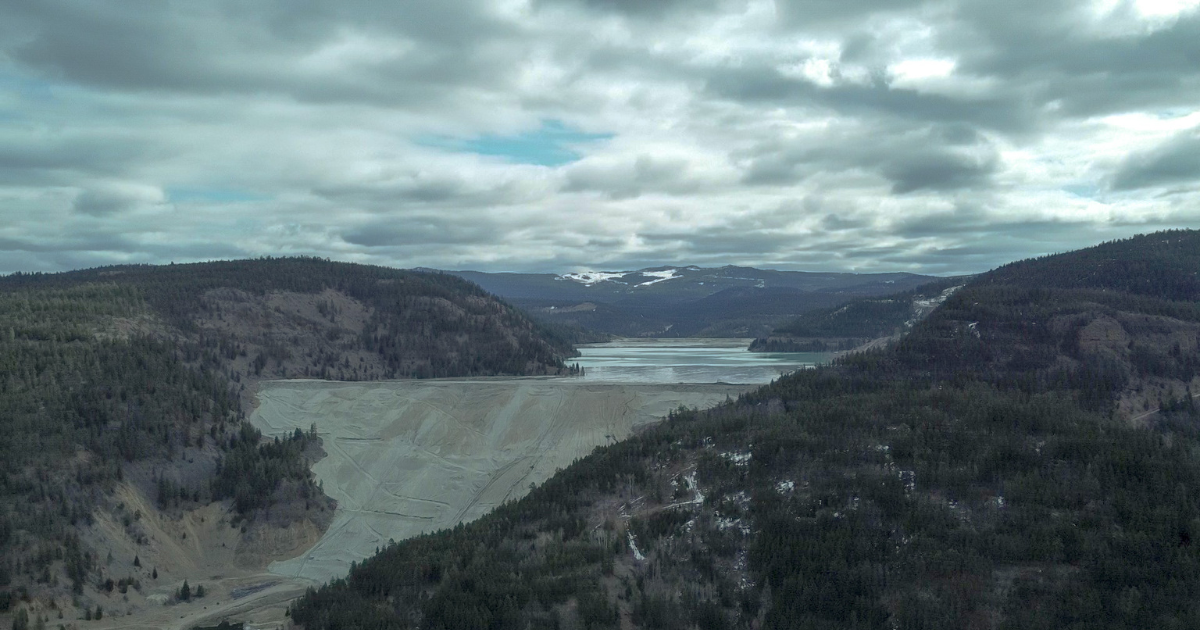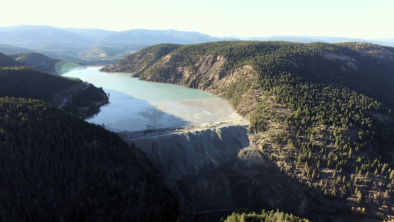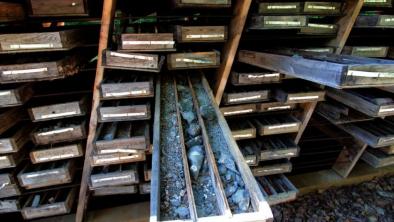ENGO sign on letter requesting an Environmental Assessment for Copper Mountain Mine's tailings pond expansion

Dear George Heyman, Minister of Environment and Climate Change Strategy and Chief Executive Assessment Officer Elenore Arend,
We are writing on behalf of twenty-two organizations, groups and individuals collectively representing over one million members of the public within Canada and the United States. Pursuant to Section 11 of the Environmental Assessment Act, we request the Copper Mountain Mine New Ingerbelle expansion be designated as a “reviewable project” and subject to full environmental assessment under the Environmental Assessment Act. As Minister, you may make this designation if you conclude that such a designation is “in the public interest.”
Under Section 11 of the Act, the Minister of Environment and Climate Change Strategy should designate the New Ingerbelle expansion as reviewable after consideration of the following factors:
- An Indigenous Nation, Lower Similkameen Indian Band, has requested the New Ingerbelle expansion be designated reviewable and receive an environmental assessment.
- There are potential effects of the proposed project on Upper Similkameen and Lower Similkameen Indigenous Nations and their rights recognized and affirmed by Section 35 of the Constitution Act, 1982.
- There are potential effects of the New Ingerbelle expansion project that would be equivalent to or greater than the potential effects of other reviewable mine projects.
- An environmental assessment for the New Ingerbelle Expansion would be consistent with the purposes set out in Section 2 of the Act: to promote sustainability by protecting the environment, fostering a sound economy and the wellbeing of British Columbians and their communities, and supporting reconciliation with Indigenous Peoples in British Columbia.
It is in the public interest that the New Ingerbelle expansion project be assessed thoroughly to determine the risks and impacts to people and ecosystems. The current operations at the Copper Mountain Mine have never received an environmental assessment, making this one all the more important. The Copper Mountain Mine has been on the public’s radar since its inception due to its size, towering tailings dam, its proximity to the Similkameen River and many communities, and the catastrophic impacts that would occur from a tailings dam breach. Multiple news sources throughout the years have reported on public concern regarding this project, the mine’s history of non-compliance and the potential for catastrophic impacts to multiple communities not only in BC but south of the border as well.
British Columbians want action on mining reform and Indigenous consent when it comes to mining projects — 72 per cent of British Columbians believe that the provincial Government should be required to seek consent from First Nations before allowing mining claims. Both the Lower Similkameen and Upper Similkameen Indian Bands have expressed concern over this expansion project, and the Lower Similkameen Indian Band has formally requested it undergo an environmental assessment.
The New Project is proposed within the area where Lower Similkameen Indian Band and Upper Similkameen Indian Band exercise Aboriginal rights and title guaranteed by S.35 of the Constitution Act, 1982 and Indigenous rights protected by the United Nations Declaration of the Rights of Indigenous Peoples (UNDRIP) and Declaration of the Rights of Indigenous Peoples Act (DRIPA). Both Nations have expressed the mine expansion will have extremely high impacts on rights and interests. B.C. must uphold DRIPA and the rights protected S.35 of the Constitution Act, 1982, and commit to the recognition of an independent Indigenous-led environmental consideration process as requested by Lower Similkameen and Upper Similkameen Indian Bands.
The company’s 2019 New Ingerbelle expansion application on the Government website is drastically different from the details described in their 2022 New Ingerbelle expansion plan, which highlights that the application may be out of date and not disclose their full expansion plan. If the application was updated to their 2022 expansion plan, it would likely trigger an environmental assessment simply for being over the ore production threshold and disturbance area threshold.
Below is supplemental analysis prepared by the Wilderness Committee expanding on the reasons that the New Ingerbelle expansion project must be designated as reviewable. After designating the project as a “reviewable project,” we ask that you commit to the recognition of an independent Indigenous-led environmental consideration process as requested by Lower Similkameen and Upper Similkameen Indian Bands.
Conclusion
In light of the information, we request that:
- The Minister designate the New Ingerbelle open pit push back and mine life extension as a reviewable project, pursuant to S. 11 of the Environmental Assessment Act
- The Minister and the Chief Executive Assessment Officer take the necessary steps to ensure that the environmental assessment be Indigenous-led by committing to the recognition of an independent Indigenous-led environmental consideration process as requested by Lower Similkameen and Upper Similkameen Indian Bands.
These measures are necessary to create public trust that this project is proceeding in a way that is consistent with the provisions and purposes of the EAA – in a way that serves the public interest and truly “promote[s] sustainability by protecting the environment and fostering a sound economy and the well-being of British Columbians and their communities.”
Sincerely,
Charlotte Dawe, Wilderness Committee
Helen Boyd, Canadian Association of Nurses for the Environment
Gavin Smith, West Coast Environmental Law
Jay Ritchlin, David Suzuki Foundation
Mitch Friedman, Conservation Northwest
Nikki Skuce, Northern Confluence Initiative
Adrienne Berchtold, SkeenaWild Conservation Trust
Lorah Super, Methow Valley Citizens Council
Tom Uniack, Washington Wild
Rick Gillespie, Columbiana Bioregional Education Project
Sarah Kliegman, Okanogan Highlands Alliance
Liz McDowell, Stand.earth
Jamie Kneen, MiningWatch Canada
Jens Wieting, Sierra Club British Columbia
Tori Ball, Canadian Parks and Wilderness Society, British Columbia
Alana Westwood, School for Resource and Environmental Studies, Dalhousie University
Yeslie Lizarraga, Climate Justice University of British Columbia
Rita Wong, Mountain Protectors
Tim Takaro, Protect the Planet
Alley Soriano, Simon Fraser University 350
Joy (sənma̍lqs) Abrahamson, Aboriginal Outfitters
Alexandra Woodsworth, Dogwood Foundation
Read the full letter, including a supplemental analysis prepared by the Wilderness Committee, here.



